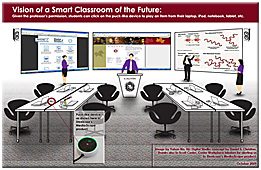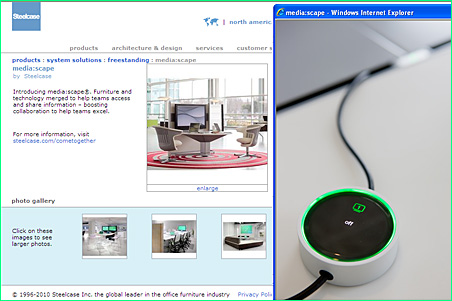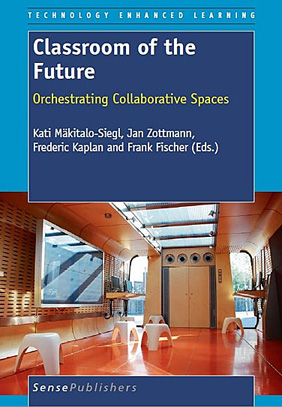Influence Education Through Design Thinking — Robert Jacobs
I have been thinking and reading a lot about Design Thinking. In his book Change By Design, author and IDEO CEO Tim Brown says that a prerequisite for creative cultures, “…is an environment—social but also spatial—in which people know they can experiment, take risks, and explore the full range of their faculties.”
He goes on to say that, “They physical and the psychological spaces of an organization work in tandem to define that effectiveness of the people within it.”
12-13 years sitting in a chair. Do you think the type of chair students spend the majority of their youth influences behavior? It is possible that the type of chair might impact the approximately 13,000 to 14,000 hours spent sitting in it?
The pinnacle of educational design seems to be the plastic chair. Does that chair say something about our educational system?
From DSC:
I post this because I do think that the learning environments that our students are in affect their motivation, creativity, performance and more. However, being a part of a smart classroom team, I realize that budgets don’t always allow us to create the “Google” (or other types of) working environments that we might seek to create. Nevertheless, if you are reading this posting and you have a chance to do something creative, fun yet classy/professional, I say “Go for it!”











